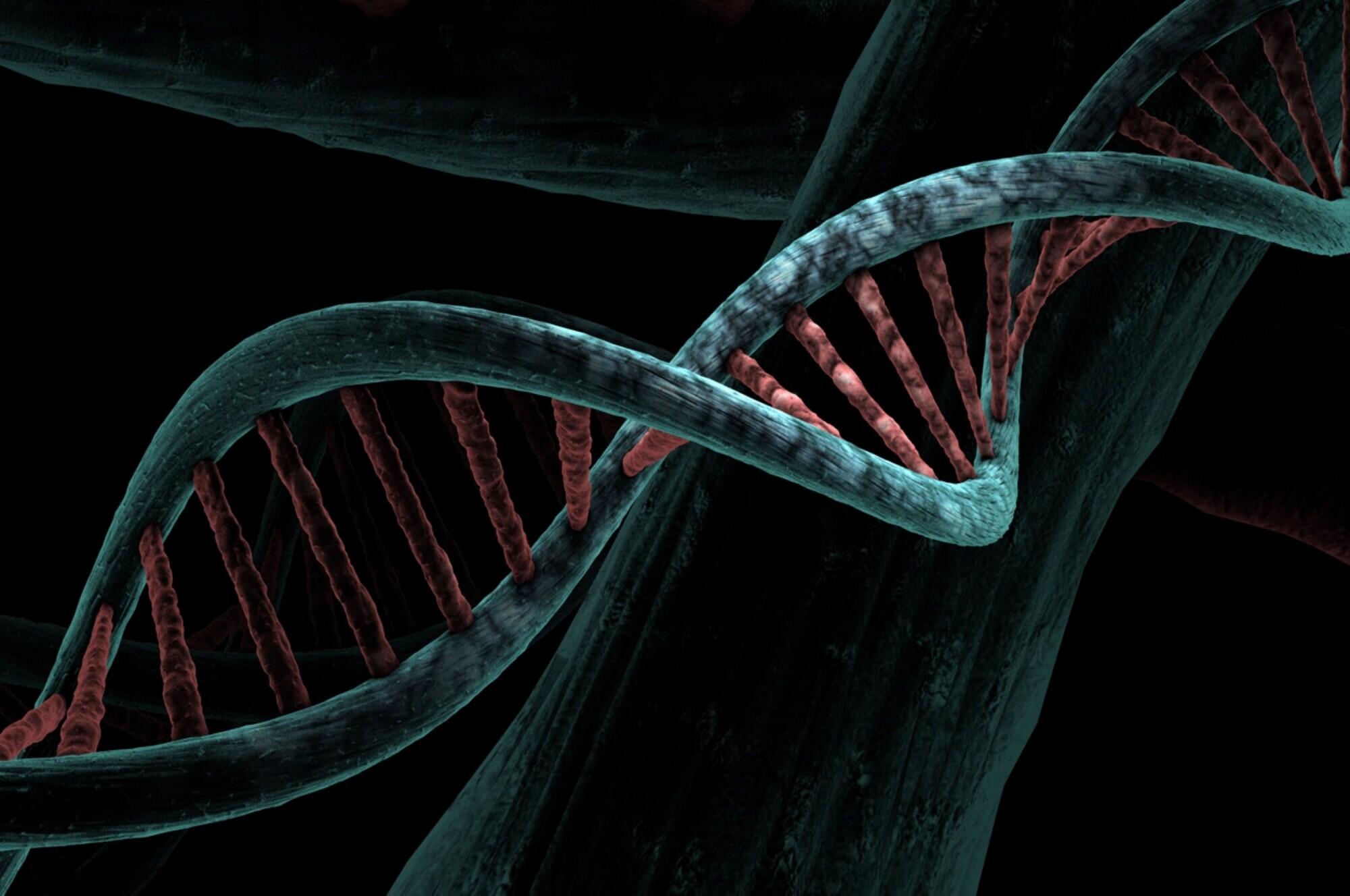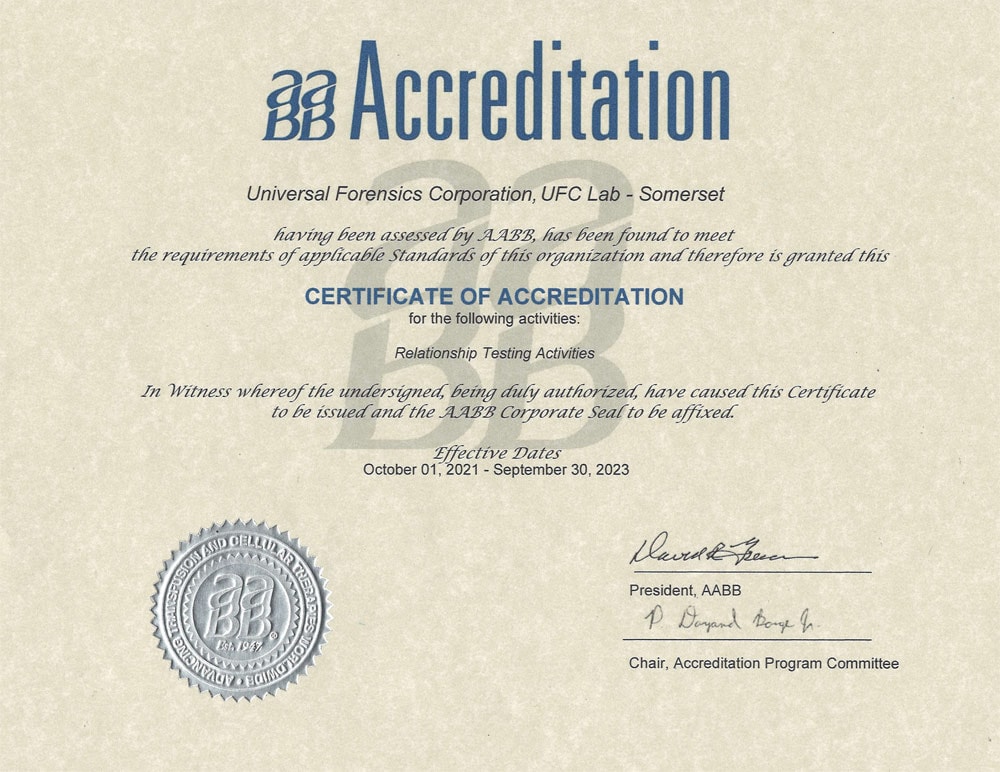Your Questions About Sibling DNA Testing: Answered

Siblings have the closest DNA match of all biological relationships except for parents and their full children. Full siblings share about 50% of the same DNA, or approximately 25% from each parent.
With so much shared genetic material, sibling DNA testing is incredibly accurate. These tests can identify if two people share the same parent(s), their relation to each other, or one sibling’s relation to another’s child(ren).
Learn why people get sibling DNA tests and more answers to your most-asked questions in this guide.
Types of Sibling DNA Tests
Sibling DNA tests are used in two specific types of situations. The first is to determine how full or half siblings are biologically related or unrelated. The second is during a paternity or maternity legal proceeding where the father or mother is not present for DNA testing.
DNA Tests for Full or Half Siblings
Half or full siblings may take a DNA test to determine their biological relationship or the identity of their biological mother, father, or both.
People who suspect they may be full or half siblings can also take a DNA test to confirm their biological relationship or lack thereof.
There are many reasons someone might want to identify their relation to a suspected sibling. One or both siblings may have been adopted. Or siblings adopted together may want to know the nature of their biological relationship.
Other reasons for a full or half-sibling DNA test include verifying medical history, qualifying for social security benefits, fulfilling inheritance claims, gaining immigration benefits, or settling insurance claims.
Sibling DNA Tests for Paternity
Sibling DNA tests can also be useful in paternity cases where the suspected father is deceased or otherwise unavailable for the test. These tests are also known as missing parent DNA testing.
In these cases, a full sibling (brother or sister) may be tested to determine a child’s biological father instead.
Though less common, siblings can also be DNA tested to determine the identity of a child’s biological mother.
Full or Half Sibling DNA Testing FAQs
Are you and your sibling or someone you suspect might be your sibling interested in uncovering the truth about your biological relationship? If so, you probably have questions about sibling DNA tests.
Find the answers you’ve been searching for next.
Can DNA Determine If Siblings Have the Same Parents?
Yes, DNA can determine if siblings have the same parents. They can also identify if siblings only share one parent or none.
Sibling DNA tests can also show the relationship between two siblings, whether full or half. They can determine whether half-siblings share the same mother or father.
If two people suspect they are related, a sibling test can identify if they are full or half-siblings or unrelated.
Can You Do a Sibling DNA Test Without the Parents?
Yes, you can do a sibling DNA test without the parents present. Your mother’s and father’s DNA is not needed for accurate testing results, though having at least one of these does increase the chances of an inconclusive result.
Children inherit about half of their DNA from their parents. They also tend to share around 50% of the same DNA. The more DNA they share, the more likely two people are to be full siblings.
What Do I Need for a Sibling DNA Test?
For a sibling DNA test, you need consent to test DNA from all siblings involved. Though not a requirement, having DNA from a known shared parent can improve the accuracy of your results.
Most commonly, the test will require a buccal swab, or a tissue sample from inside your mouth. You will insert the swab into a test tube, which the lab will evaluate and potentially match to your sibling’s sample.
Are Sibling DNA Tests Accurate?
Yes, sibling DNA tests are accurate at determining the biological relationship between two people. No DNA test is 100% conclusive. But the closer a genetic link two people share, the more accurate the results.
Paternity Sibling DNA Test FAQs
When a child’s father passes away, disappears, or refuses to undergo testing, mothers may feel they have no options for determining paternity. Rest assured that there are other ways to identify your child’s father.
Is There a Way to Do a DNA Test Without the Father?
Yes, there is a way to do a DNA test without the father if his brother or sister consents to testing. Parents, aunts, and uncles of the suspected father can also be tested to determine paternity in these cases.
Obtaining DNA from the father offers results with up to 99.999% accuracy. However, if the suspected father has died, can’t be located, or refuses to submit to testing, a sibling’s or relative’s DNA should suffice.
First-degree family members share much of the same DNA. Parents share around 50% of their DNA with their children. Siblings are an ideal stand-in, as brothers and sisters also share around 50% of their DNA.
Testing the suspected father’s parents (the child’s grandparents), aunts, or uncles is less reliable. Grandparents only share 25% of their DNA with their grandchildren. Great aunts and uncles share even less DNA.
Is a Home Paternity Test Admissable in Court?
No, a home paternity test is not admissible in court. For any DNA test to be valid in a court of law, it must be a legal DNA test. Legal DNA tests take place in person at a third-party lab with no personal interest in the test results.
Paternity DNA testing may take place before the child’s birth (prenatal paternity tests) or after. They are most accurate when the father, mother, and child undergo testing.
Including the mother during a missing parent DNA test is not always required but may improve the outcome’s reliability.
Order a DNA Test from ReliaLabTest
A sibling DNA test can help you discover your relation to someone you suspect might be your full or half-brother or sister. It can identify which parents, if any, you share. Siblings can also submit their DNA for a missing parent DNA test to determine a child’s parentage in the father’s or mother’s absence.
Are you searching for accurate sibling DNA testing services? ReliaLab Test offers in-home and American Association of Blood Banks (AABB)-certified legal DNA tests to reliably determine paternity or your relation to a suspected sibling.
Order a test online today or inquire about our court-ordered DNA testing services.








